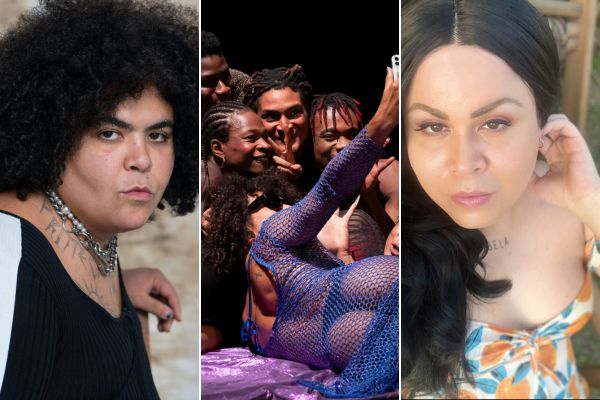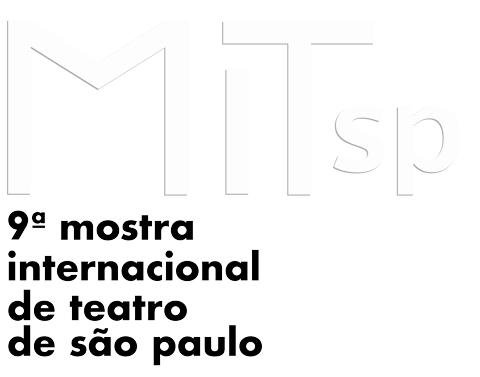Thought-In-Process
Prophetic (We've Born Already)
With Jota Mombaça and Nadia Beugré
Mediation Maria Lucas
Guests from different fields of knowledge take a cross-cultural view about the festival’s shows, in dialogue with the artists and the audience. Reflections on the creation process and other themes are developed from the reading of the works in focus.
WHEN AND WHERE
March 8, Friday, after the show
Arthur Azevedo Theatre
Av. Paes de Barros, 955 – Alto da Mooca, São Paulo – SP

About
Jota Mombaça is an unruly artist and writer whose work derives from poetry, critical theory, and performance. Her practice is related to anti-colonial critique and gender disobedience. Through performance, visionary fiction and situational strategies of knowledge production, she aims to rehearse the end of the world as we know it and the outline of what comes after we evict the colonial-modern subject from its podium. She has presented works in various institutional contexts, such as the São Paulo, Berlin and Sydney biennials.
Nadia Beugré was born in Ivory Coast and, in 1995, debuted as a dancer at Dante Theatre. Her last creation before Prophetic (we’ve born already), L’Homme Rare, a performance with a male quintet, premiered in 2020. For a decade, the artist’s plays have traced a singular path around the margins, the exclusion, the abnormal; they travel through changing identities. In 2020, with Virginie Dupray, she founded the dance company Libr’Arts, a production and training platform.
Maria Lucas is a theatre artist and researcher, born in Rio de Janeiro. PhD student in art at UERJ, as a researcher she is part of group MOTIM (Myth, Rite and Feminist Cartographies in the Arts) and with a residency at MAM-Rio, composed one of the chapters of the book Estes Seres Vivemos [We Live These Beings]. Author of the books Esse Sangue Não é de Menstruação, mas de Transfobia [This Blood Is no Menstruation but Transphobia] and Mais uma Casa de Bonecas [Another Doll House], both part of D’Ela Trilogy and published by Urutau Publishing in Brazil, Galicia and Portugal. She is the winner of the Moreira Salles Institute prize for essays.
